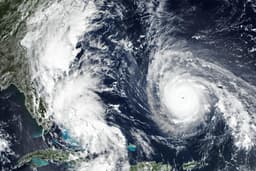Home / Weather / Climate Change Fuels Intensifying Hurricanes, Threatening Coastal Regions
Climate Change Fuels Intensifying Hurricanes, Threatening Coastal Regions
29 Oct, 2025
Summary
- Hurricane Melissa, one of the strongest Atlantic storms on record, hits Jamaica
- Climate change likely increasing intensity of tropical cyclones worldwide
- Warmer oceans and atmosphere lead to higher wind speeds, heavier rainfall, and greater coastal flooding

On 2025-10-29T12:30:58+00:00, Hurricane Melissa, one of the strongest Atlantic storms ever recorded, created "extremely dangerous and life-threatening" conditions in Jamaica, according to the US National Hurricane Center. While climate change is not thought to increase the overall number of hurricanes, typhoons, and cyclones worldwide, warmer oceans and a warmer atmosphere fueled by climate change have the potential to make these storms even more intense.
This intensification can lead to higher wind speeds, heavier rainfall, and a greater risk of coastal flooding, posing a growing threat to vulnerable communities. Hurricanes, typhoons, and cyclones are powerful storms that develop in warm tropical ocean waters and are characterized by very high wind speeds, heavy rainfall, and storm surges that often cause widespread damage and flooding.



